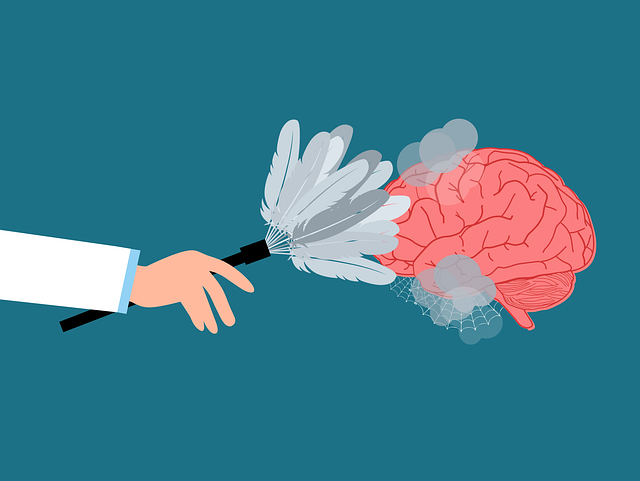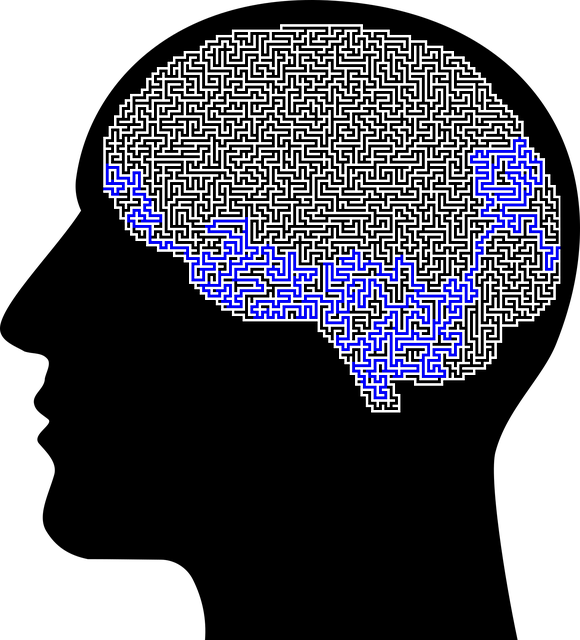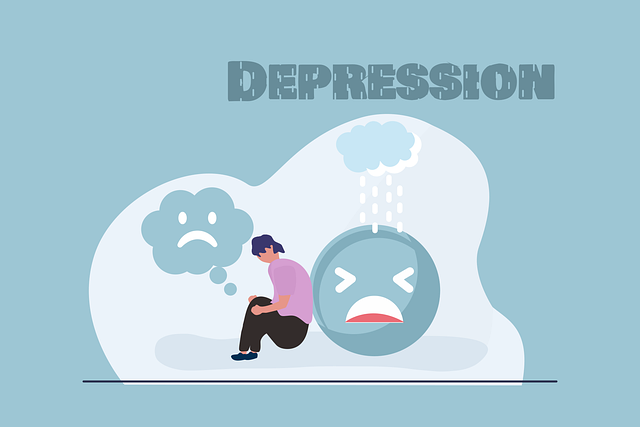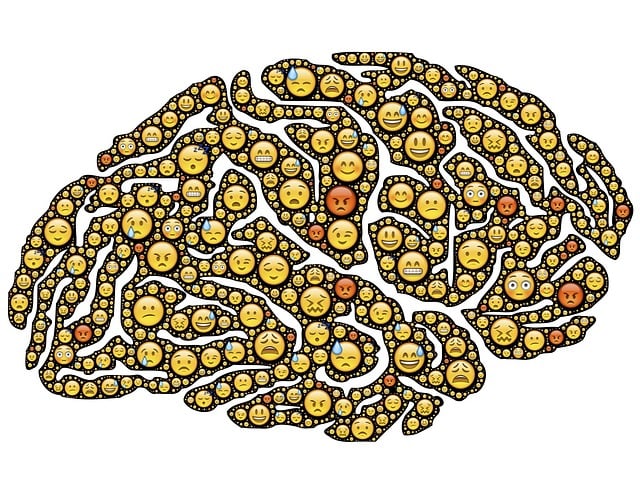Arvada Therapy for Therapists-Clinicians offers specialized training for Crisis Intervention Teams (CITs), empowering mental health professionals to handle acute crises effectively. Their program combines hands-on practice, social skills, and policy analysis, teaching de-escalation, active listening, and emotional regulation techniques. Through realistic simulations and mindfulness meditation, CIT members gain practical knowledge and resilience to support clients' complex needs, including depression prevention. Continuous evaluation ensures the program stays relevant, with a focus on Inner Strength Development, Emotional Regulation, and Burnout Prevention to benefit both professionals and those they serve.
In today’s complex social landscape, effective crisis intervention teams (CITs) are essential for supporting individuals in distress. This article delves into the critical role of CITs and highlights the significance of specialized training for therapists-clinicians. We explore key components of successful crisis intervention team training programs, using Arvada Therapy as a case study, showcasing innovative methods that enhance therapist preparedness. Additionally, we discuss strategies for implementation and continuous improvement to ensure long-term success in CIT training.
- Understanding Crisis Intervention Teams: Their Role and Impact
- The Importance of Specialized Training for Therapists-Clinicians
- Key Components of Effective Crisis Intervention Team Training Programs
- Arvada Therapy: A Case Study in Innovative Training Methods
- Implementation and Continuous Improvement: Ensuring Long-Term Success
Understanding Crisis Intervention Teams: Their Role and Impact

Crisis Intervention Teams (CITs) play a pivotal role in supporting individuals facing severe emotional distress or mental health crises. These specialized teams typically consist of therapists, clinicians, and other trained professionals who collaborate to provide immediate assistance. Their primary goal is to de-escalate situations that might otherwise escalate into more severe problems, ensuring the safety and well-being of both the individual in crisis and those around them. By offering a swift response, CITs can help individuals gain a sense of stability and guide them towards long-term solutions for managing their mental health challenges.
The impact of CITs extends far beyond immediate crisis resolution. Through structured interventions and therapeutic techniques, these teams foster inner strength development and mood management skills in those they support. By empowering individuals to navigate future crises with resilience and self-care strategies, Arvada Therapy for Therapists-Clinicians can contribute significantly to depression prevention efforts. This proactive approach not only benefits the individual but also creates a supportive network that enhances overall community mental health.
The Importance of Specialized Training for Therapists-Clinicians

Specialized training for therapists and clinicians is paramount in effectively supporting individuals during crises. The Arvada Therapy community recognizes that navigating intense situations requires a unique skill set beyond general therapeutic practices. This targeted training equips professionals with the necessary tools to provide immediate and meaningful assistance. By focusing on crisis intervention, therapists can develop communication strategies that foster safe and supportive environments, enabling them to guide clients towards coping skills development and burnout prevention.
The impact of this specialized education extends beyond individual therapy sessions. Trained clinicians become integral parts of a broader support network, ensuring a more cohesive and effective response during crises. This training empowers them to recognize signs, understand triggers, and offer tailored interventions, ultimately enhancing the overall well-being of both clients and communities they serve.
Key Components of Effective Crisis Intervention Team Training Programs

Effective crisis intervention team training programs for therapists and clinicians should incorporate several key components. Firstly, Arvada Therapy for Therapists-Clinicians emphasizes hands-on practice in high-fidelity simulations to prepare professionals for real-world scenarios. This allows them to hone their de-escalation techniques, active listening skills, and emotional regulation strategies, which are crucial for managing crisis situations.
Additionally, Social Skills Training and Conflict Resolution Techniques play a pivotal role in fostering effective communication and collaboration within the crisis intervention team. Mental Health Policy Analysis and Advocacy should also be integrated into the curriculum to ensure professionals understand the broader context of crisis management, including legal considerations and resource allocation. These multifaceted training programs empower therapists and clinicians to confidently and compassionately guide individuals through crises, ultimately enhancing service delivery in mental health care.
Arvada Therapy: A Case Study in Innovative Training Methods

Arvada Therapy stands as a beacon of innovation in crisis intervention team (CIT) training, offering unique and impactful programs that set new standards for therapists and clinicians. Their approach emphasizes interactive learning experiences designed to equip professionals with the skills needed to effectively support individuals facing mental health crises. By integrating techniques like mindfulness meditation into their curriculum, Arvada Therapy fosters emotional intelligence, enabling practitioners to better understand and respond to the complex needs of their clients.
This forward-thinking organization recognizes the importance of preparing CIT members not just for reactive interventions but also for proactive depression prevention strategies. Through immersive training scenarios and expert guidance, therapists gain practical knowledge in managing high-stress situations while cultivating a sense of emotional resilience among team members. The result is a highly skilled and prepared crisis intervention force ready to make a meaningful difference in the lives of those facing mental health challenges.
Implementation and Continuous Improvement: Ensuring Long-Term Success

The success of crisis intervention team training programs lies not only in their initial implementation but also in ongoing commitment to continuous improvement. Regular evaluation and refinement are essential to ensure that the program remains effective and aligned with the evolving needs of both the team members and the community they serve. This process involves gathering feedback from participants, tracking progress, and identifying areas for enhancement. By fostering a culture of learning and adaptation, crisis intervention teams can optimize their performance and better support individuals in distress.
For instance, Arvada Therapy for Therapists-Clinicians can integrate strategies for Inner Strength Development, Emotional Regulation, and Burnout Prevention into their training curriculum. Regular workshops and follow-up sessions that focus on these areas can empower team members to manage stress, maintain resilience, and provide more effective care in crisis situations. This holistic approach not only enhances the quality of interventions but also promotes the long-term well-being of the professionals involved.
Crisis intervention team training is a vital component of ensuring effective support during mental health crises. As highlighted in this article, specialized programs like those offered by Arvada Therapy equip therapists and clinicians with the necessary skills to navigate challenging situations. By focusing on key components such as scenario-based training and debriefing, these initiatives foster a collaborative environment, enhancing the team’s overall effectiveness. The case study of Arvada Therapy demonstrates that innovative training methods can revolutionize crisis intervention, ultimately leading to better outcomes for individuals in need. Continuous improvement and regular updates are essential to keep up with evolving best practices, ensuring long-term success in managing crises within the therapeutic setting.














